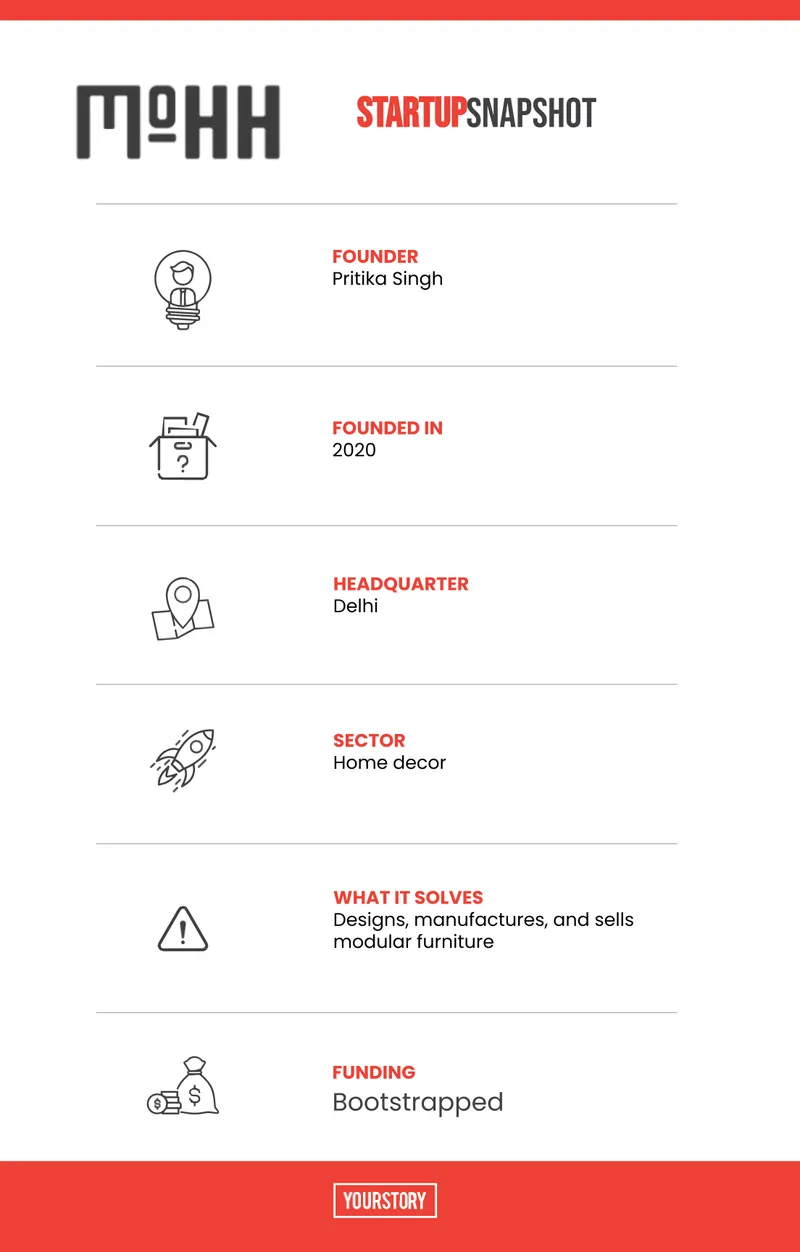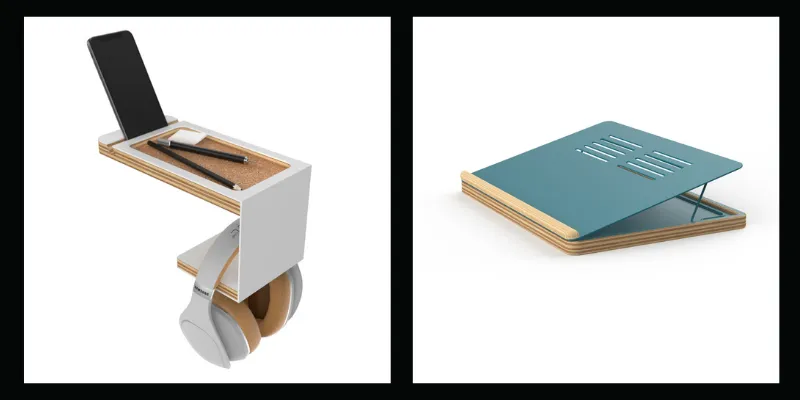Gender bias has no space in this woman entrepreneur’s mission to build a household furniture brand
Pritika Singh's Mohh, started during the pandemic, offers living room and outdoor furniture that are plastic-free. The entrepreneur believes gender biases should not come in the way of Mohh’s journey.
In January 2020, Pritika Singh quit her corporate job as a marketing professional and decided to take the entrepreneurial plunge.
She noted that the furniture market in India lacked modern and design forward furniture and decided to start which means “something desirable” in Hindi.
No sooner was she ready to launch the business in March 2020, the coronavirus pandemic sent India into a nationwide lockdown.
Despite many impending challenges, Pritika, who hails from a business family in Delhi, had some cushion to fall back on as a second-generation entrepreneur. Her family business, Satin Neo Dimensions, is a multi-disciplinary environmental design solutions company that has been operating for over 15 years.
Today, Mohh offers a range of living room and outdoor furniture including sustainable solutions, all designed and manufactured in India and priced between Rs 3,000 and Rs 45,000.

The journey
After completing her BCom from Delhi University, Pritika entered the corporate world by working at Ernst & Young at the age of 21 before opting to specialise in international marketing from King’s College, London.
Two years of working full-time after her return to India, she began noticing how most furniture in every other store has similar designs and materials and the newer online brands did not break away from the trend.
During an impromptu family conversation on how to take the business to the next level, Pritika suggested leveraging the existing factory and infrastructure to launch a B2C consumer brand. “That’s how the conversation snowballed into a full-fledged business plan for Mohh,” she says.
The brand now operates with a core team of 12 people in the office, including professional furniture designers.
As work from home has become the order of the new normal, its range of user-friendly study and work tables are some of the bestselling products.
The young entrepreneur also emphasises on bringing sustainable solutions in home décor and furniture. Besides ensuring that all furniture is completely plastic-free, some of its ranges are made from upcycling wood and metal from factory scrap.

Products by Mohh
Challenges of being a pandemic business
Stepping into entrepreneurship in the thick of a pandemic has not been an easy task for Pritika. Building a team remotely and gaining the first customers to purchase, and logistics has been some of the initial challenges.
As a brand, potential buyers often ask if they can visit a physical store and see the product before purchase. “This is one area where we are losing our customers, but we are trying to ride the Made in India wave by assuring them of the quality with as many pictures and videos,” she says.
Speaking of competition in the furniture market in India, which is expected to reach over $31 billion by 2024, she says,
“the market in India is unorganised and is dominated by local vendors and small shops, which gain most of the traction.”
At the same time, Pritika says her gender and age has come in the way of the business to a certain extent. She recalls instances where she had to assert herself in conversations and people would not take her seriously.
"During a networking event in Bombay pre-pandemic, there was a boys club and I used to do the interviews and everything myself. And they would ask me, ‘how long do you think you'll be running the business’, implying that Mohh is a short term interest and not something that is going to have a long life.” At the end of the day, she believes the work done and achieved speaks for itself.
She is clear that such biases should not come in the way of Mohh’s journey to becoming a household furniture name, especially as it looks to establish offline presence and build more strategic partnerships.
Edited by Megha Reddy



![[100 Emerging Women Leaders] From an analyst to the CEO of a unicorn - the journey of Zilingo’s Ankiti Bose](https://images.yourstory.com/cs/4/a9efa9c02dd911e9adc52d913c55075e/Image8eom-1598537203305-1626954630261.jpg?fm=png&auto=format&h=100&w=100&crop=entropy&fit=crop)





